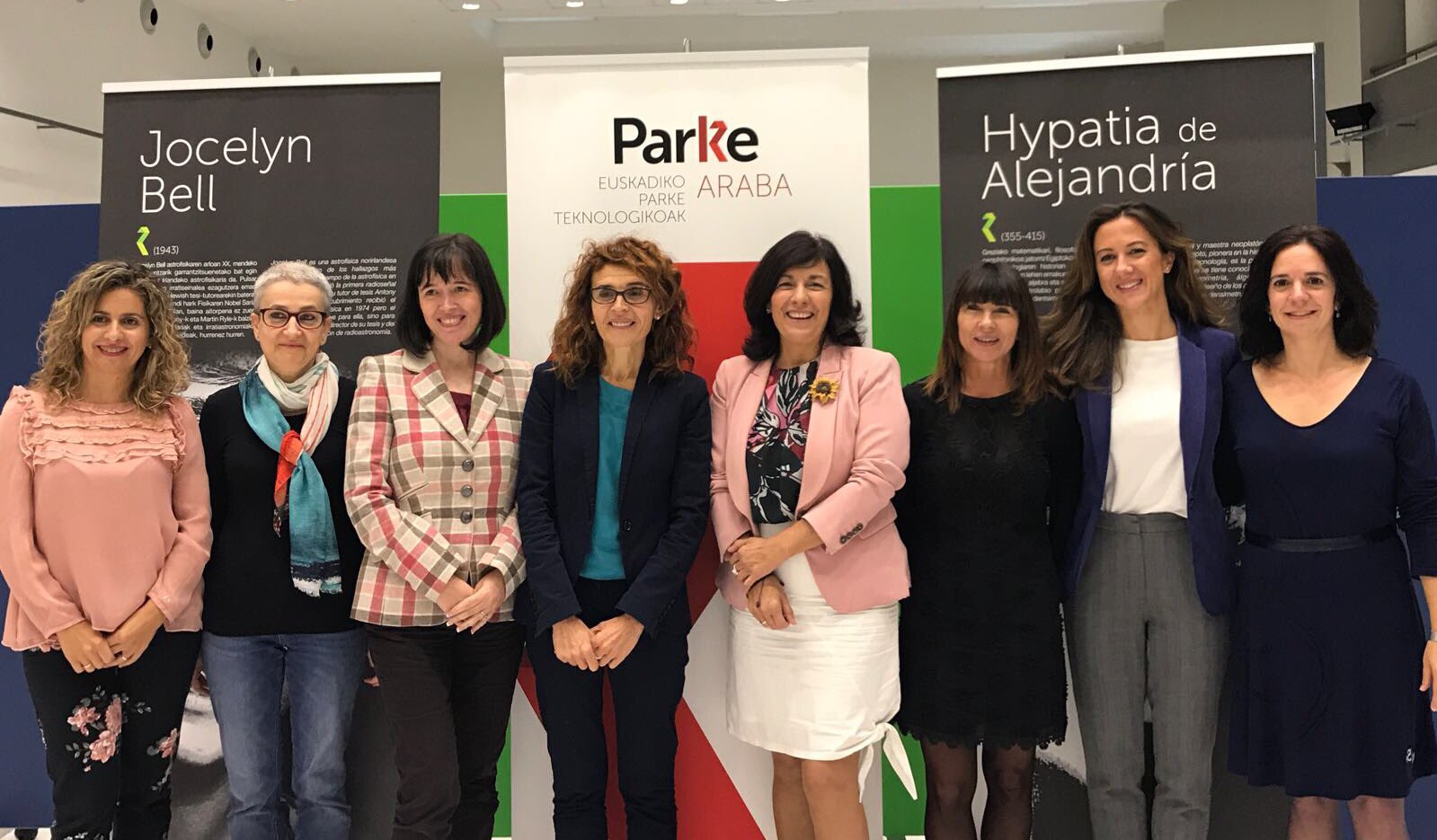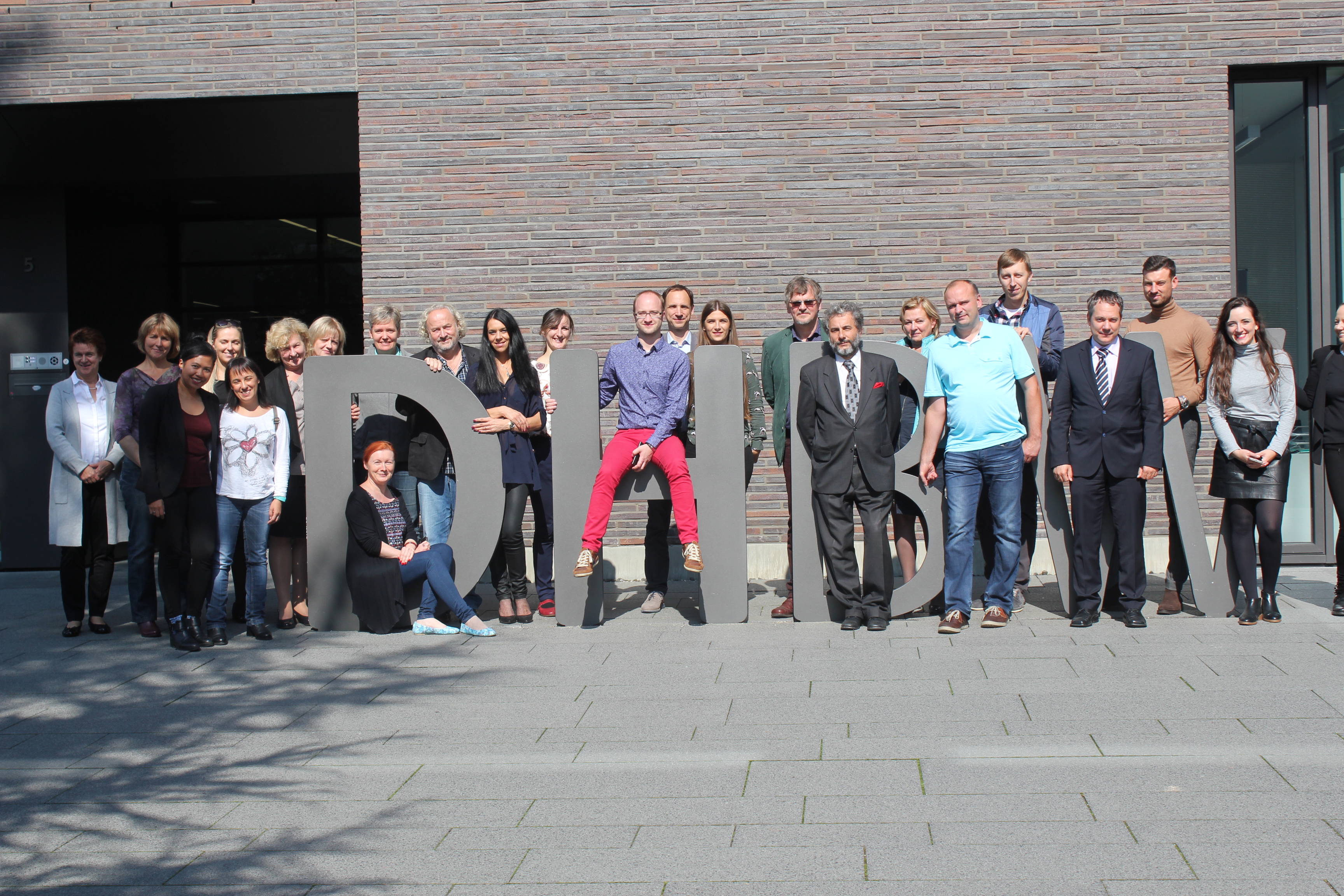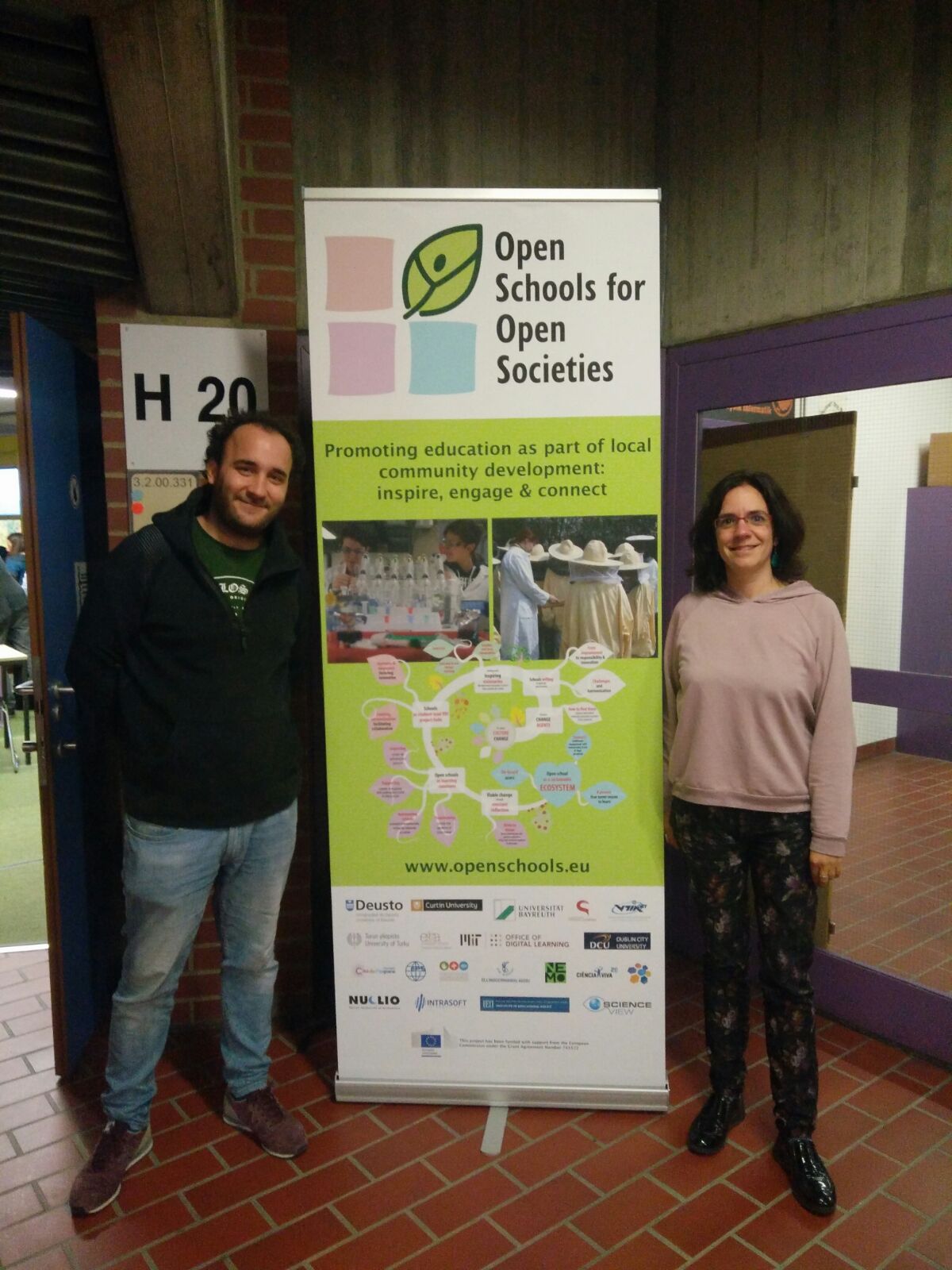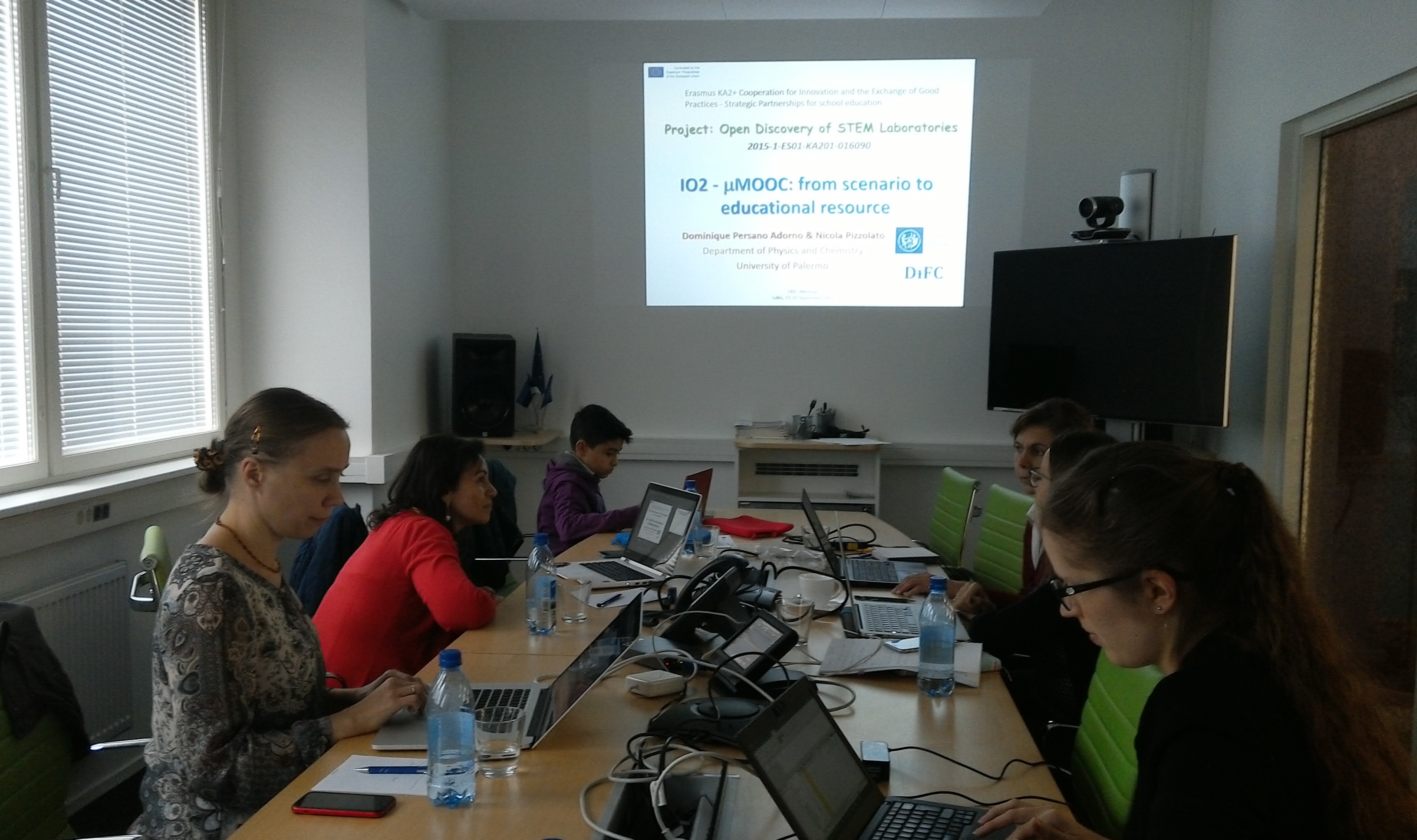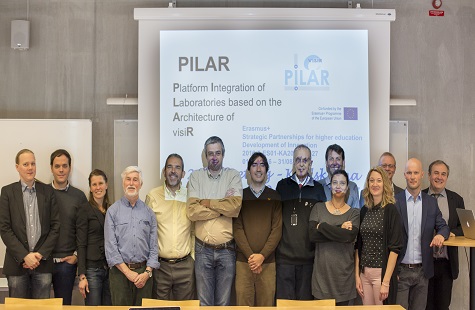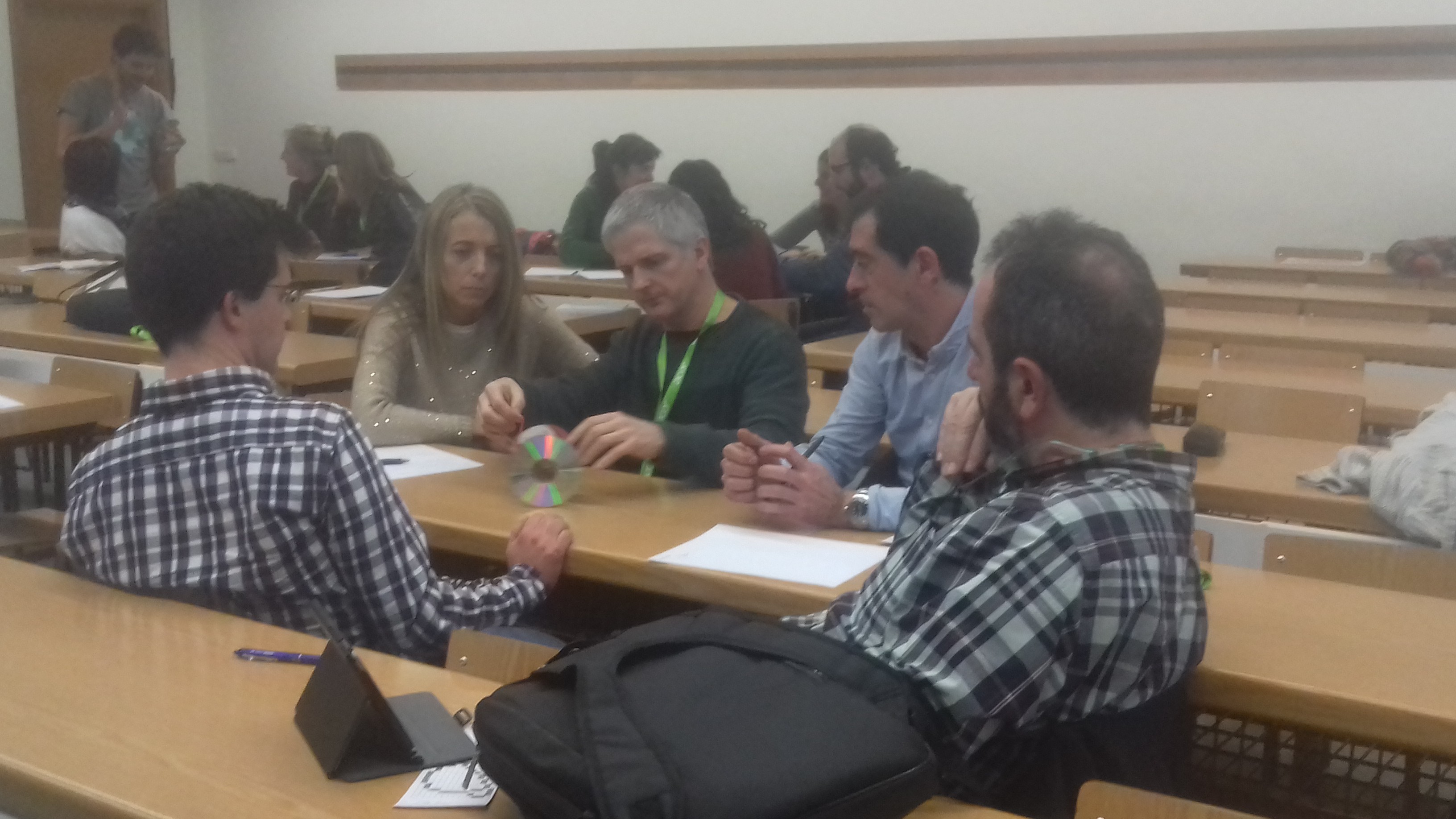6-7 November 2017 Olga Dziabenko researcher of the Deusto LearningLab participated in MoPED meeting that took place at the Vasyl Stefanyk Precarpathian National University, Ukraine. The project “Modernization of Pedagogical Higher Education on the Use of Innovative Teaching Tools” (MoPED) – No. 586098-EPP-1-2017-1 -UA-EPPKA2-CBHE-JP is a capacity building project directed to the modernization of HE in Ukraine. It aims at modernizing curricula for Pedagogical Schools of Ukraine by incorporating new courses of top-notch ICT teaching tools and inquiry methods. By answering the contemporary challenges and requirements, and supporting ambitious large-scale educational reforms in Ukraine, the project impacts the quality of pedagogical higher education and enhance digital and didactic competences of future school teachers. The Deusto LearningLab, University of Deusto is the co-coordinator/ content developer leader of the project. The 10 international partners from Cyprus, Poland, Spain, and Ukraine implement MoPED concept in the life ensuring the modernization of curricula of Master’s and Bachelor’s Degree Programs.
Nov
Oct
The importance of intercultural competences, of the course design and to know your target audience as well as the fruitful international discussions, and learning about new tools were claimed as the main benefits for participating at the 2nd (final) VOCAL short-term staff training event that took place in Heilbronn, Germany between 18-22 September.
23 participants from VOCAL partner institutions continued their work together that started in Kaunas this May to acquire competences on tutoring international, intercultural and diverse learner groups and digitalization of quality learning resources. They were working on the VOCAL Moodle platform as well as in groups, sharing the focus between the training material and the foundations of the 6 re-developed courses that will be the next great assignment for the participants.
At the end of the event we have asked participants to share what their key messages, achievements were that they will take home with them. Here are some of their responses:
“I found the guest presentations and the presented tools the most useful during the training week.”
“The international discussions were really fruitful. I could also finally have a clear picture of the course design and how to proceed about it.”
“I meet new people with whom I can continue working and I think that we can collaborate in future projects.”
“The more I learn about intercultural competence the more I am aware about its importance.”
“There’s a lot of work and thoughtful preparation when designing online courses, and that the international and intercultural dimension is almost always impossible to avoid… so it’s something that should always be considered and thought about. I also learned got a better overview of how to structure a course. I particularly liked the cultural intelligence framework and would incorporate it in my own teaching and research.”
“There are more similarities in the teaching world than expected.”
“Always over plan a training content- and activity wise, as it is better to take home “unused” slides and activities than not knowing how to kill the time.”
“Its nice and productive to use colleagues experience and to benefit from collaboration.”
“It’s very important to know your target audience. That’s where everything starts – how you structure and adapt your content, how you differentiate it and what aspects should be considered when planning.”
Oct
Oct
During 21-22 September 2017 Deusto LearningLab led the third partners meeting of the Erasmus+ project “Open Discovery of STEM Laboratories (ODL)”. The transnational meeting took place at the premises of HITSA (Tallinn, Estonia), which initiates and guides innovation and development in the area of educational technology and introduces best practices in Estonia. The agenda of the meeting was focused deeply on the Intellectual Outputs related to ODL MOOC space, developing and implementing the micro-MOOCs, organizing multinational events in each country as well as planning the final project conference. More information about the project could be found on the website http://opendiscoverylabs.eu/, the catalogue of the available micro-MOOCs for the STEM school teachers are presented on the portal http://moocspace.odl.deusto.es/.
Sep
The Faculty of Engineering of the University of Deusto is committed to the problem of young people’s lack of interest in technology, particularly girls. Forecasts suggest that by 2025, 7 million people with STEM professional profiles (Science, Technology, Engineering & Mathematics) will be needed only in Europe. This could be a problem considering that women make up the 51.1 % of EU’s population (EUROSTAT 2017), that the presence of women in these areas is quite small and that the trend does not seem to reverse. Among the many factors that inhibit female technological vocations there are: the lack of knowledge about these professions, gender stereotypes or the invisibility of women throughout history. Linked to this, there is the lack of referrals from women working in technological areas. This is, precisely, the focus of Deusto’s MujerTekSpace project.
Aware that the loss of women talent in STEM is a process of multiple phases and moments, Deusto has launched, within the WomenTekSpace project, several initiatives targeting different audiences and ages: an exhibition on important women technologists throughout history, the INSPIRA project, and the Ada Byron Award to Women Technologist. The first two projects have been identified in the list of the Casio website under the title 10 Spanish reference cases supporting women´s scientific work.
Jun
On May 9 – 10, the partners from the PILAR project (Platform Integration of Laboratories based on the Architecture of VISIR), the University of Deusto among them, met at Campus Gräsvik. In addition to BTH, representatives from four other European higher education institutions participated.
At the end of 2006, BTH launched Virtual Instruments Systems in Reality, VISIR, which is an Internet based laboratory network for remote testing and control of electronic circuits. The network is designed to facilitate the distance learning at a global level. Several universities have already implemented VISIR, but there is a need for further educational developments and enhancement of the Internet of Things, IoT, based laboratory network which are the objectives of the PILAR project.
Among other things, all VISIR systems are planned to be linked to establish a network laboratory and through modern Internet of Things technology, cooperation between higher education institutions should be greatly facilitated.
This three-year project, which is in the field of applied signal processing, will continue until the autumn of 2019.
More info at: https://bth.se/eng/news/cooperation-remote-laboratories-discussed-bth/
Jun
Dentro de las Jornadas Aukera 2017 organizadas por Kristau Eskola, se impartió el taller MissToHit, dentro del marco del proyecto Erasmus+ del mismo nombre. En él se realizaron varias actividades diseñadas siguiendo la filosofía MissToHit: se parte de un error de concepto que tienen los estudiantes en las áreas STEAM (p.e. “el sabor y el gusto son lo mismo”, “la electricidad se consume”); se plantean actividades con objetos físicos, en las que los participantes juegan, experimentan y recopilan datos de lo que sucede realmente; estos datos, objetivos, llevan al estudiante a replantearse el concepto erróneo que tenía, y a encontrar la respuesta correcta a la hipótesis planteada.
El taller tuvo muy buena acogida por parte de los docentes que participaron. Consideran que MissToHit tiene un enfoque innovador que promueve el aprendizaje a través de la experimentación y la verificación de las hipótesis planteadas.

